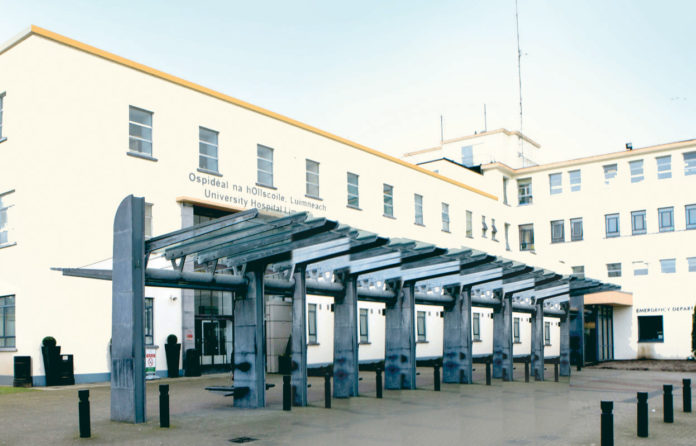
MORE than 400 incidents of abuse were recorded in hospitals operated by the University of Limerick Hospitals Group over the past two years.
Responding to a Freedom of Information request from the Limerick Post, the Hospitals Group confirmed that 352 of the incidents were recorded at University Hospital Limerick (UHL) and almost half of them involved nursing staff.
A total of 427 incidents were recorded at UHL, University Maternity Hospital Limerick, Ennis Hospital, Nenagh Hospital and Croom Hospital during 2017 and 2018.
212 of the incidents involved members of the nursing staff, who were by far the most affected group.

- External Walls: Up to €8,000 Grant
- Attic: Up to €1,500 Grant
- Cavity Walls: Up to €1,700 Grant
- Internal Dry Lining: Up to €4,500 Grant
Mary Fogarty of the Irish Nurses and Midwives Organisation (INMO) said that as nurses make up the greater population of staff in hospitals, the fact that they were involved in the greater number of incidents was to be expected.
“However, the figures are not helped by people under pressure and we have serious concern about how people are supported.
“Nurses are often the first point of contact, the first person and last person you see in the hospital, and would take a lot of discontent. Some incidents would go reported and some not,” Ms Fogarty told the Limerick Post.
Of the five hospitals in the group, UHL recorded the most incidents, with 352 being recorded in total, 61 of which occurred in the accident and emergency department, followed by 57 occurrences in ward 2C where ear, nose and throat patients are treated.
The figures show a significant increase in incidents over the two-year period, with 191 recorded in 2017 and 236 in 2018.
226 of the incidents were of a physical nature, which includes physical abuse, assault, and harassment.
Responding to the figures, a UL Hospital Groups spokesperson said that they take all incidents of assault and aggression on any party very seriously.
“The data supplied should be interpreted with caution if being presented outside of the wider context of any long term trends, national or international comparators and reporting mechanisms.
“Nursing and midwifery are the largest group of healthcare workers at UL Hospitals Group and they operate on the front line, which would explain why the number of interactions good or bad is higher in this group.”
“Training and supports are made available to all staff by UL Hospitals group, including how to manage challenging or aggressive behaviour in the workplace,” the statement concluded.

